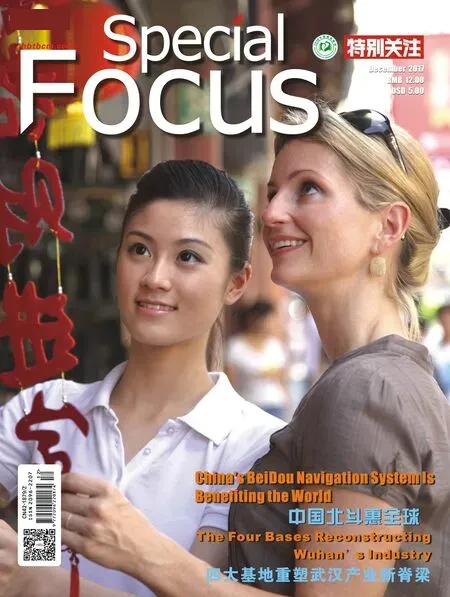Trials at Fo Guang Shan
By Chen Yuting
Translation by Li Li
Trials at Fo Guang Shan
By Chen Yuting
Translation by Li Li
In 1967, Master Hsing Yun started to build Fo Guang Shan from nothing. Today,it is Taiwan’s largest monastery.How did Master Hsing Yun manage to develop it and cultivate so many capable monks?
A senior monk once told me that one way was to create opportunities for monks to undertake the study of Buddhism independently. Master Hsing Yun usually propagates Buddhist teachings with several disciples in different countries. Sometimes,they would find a place that had a special bond with Buddhism.For example, some lay Buddhists might offer to support missionary activities and provide a place for Master Hsing Yun and his disciples to build a Bodhimanda.Master Hsing Yun would then tell a disciple, “Alright, you stay here and take charge of building the temple. Your clothes and book s will be sent to you later.” That person would stay there alone.
How could one build a Bodhimanda by oneself? You had to try every means necessary. You could start by making friends in the local Chinese community.Who would care about you if you did not give, take care of others, or help other people? Why would they give donations to the construction of a temple? The key lies in tangible bene fi ts beingcreated for the commu

佛光山开始创建时一无所有,这些僧众是如何被磨炼出来的呢?
一位资深的长老曾经告诉我,其中一个方法是创造机会,让僧众独当一面,勇于承担佛行事业。当星云大师到全球弘法的时候,会带着一些出家已经有几年的弟子。弘法时,他们往往会遇到有因缘的地方,比如有居士愿意护持,供养一个地方,让僧人先住下来,再在那里办道场。每当这时,星云大师就会对一名跟去的弟子说:“好,那你留下来吧,你来负责在这里把寺院建起来。你的衣服、书籍,都会寄过来给你。”就把他一个人留了下来。
一个人怎么建道场呢?那就得想尽办法。比如,先从华人小区开始广结善缘。你不付出、不照顾人、对人没帮助,谁理你呀?人家为什么要出钱建寺院呢?寺院得要带给当地好处才行。
除了所有的佛教规矩、经教、法事活动都得精通之外,佛光山的师兄弟们,不管男众或女众(佛门不论男女都称师兄弟),个个都能做一手好菜。这是结善缘最重要的基本功,民以食为天,会做非常好吃的素菜,信众就会聚过来。他们也会做针线、刺绣、折纸、串念珠等等,总之,只要你去精舍,他们都有一个精致的小东西送你。
每次去,吃得又好,又有精致温馨的小礼物,你自然会常去,和他一起工作、做菜、办活动、参与讲经说法,逐渐人就聚集起来了。出钱的出钱,出力的出力,慢慢地寺院也就建起来了。
辉煌的寺院建起来了。突然,有一天,星云大师下一道命令说:“请你回国,我把你派到非洲另外一个地方去建寺。”你一两天之内就必须坐飞机离开,行李事后再寄给你。有人说不近人情,但是,星云大师曾对我父亲说:“这样一个出家人,不会对任何一个道场产生执着。他死的时候,不会说,这个道场是我的。”从真正的修行角度看,这是有意义的。当然,如果当头的人心术不正,管理不恰当,也可能变成一种利用人的心机或手段,那就不好了。

星云大师 Master Hsing Yun
Apart from proficiency in Buddhist rules, doctrines, and ritual activities, brothers from Fo Guang Shan (an appellation for male and female disciples)are all good at cooking delicious food. It’s an important skill for making new friends because food brings people together. Delicious vegetable dishes attract disciples.Brothers are also good at needle work, embroidery, origami, bead stringing, etc., with which they always have an exquisite gift prepared for every visitor to their vihara.
With such tasty food and warm gifts, members of the community would certainly call on the vihara frequently. They would want to work with the disciples, cook food with them,participate in activities, and learn Buddhist teachings. More and more people would come together and contribute to building the temple by donating or providing necessary help.
A glorious temple was built,and suddenly Master Hsing Yun would tell you, “Come back. I will send you to build a temple in another place in Africa.” You would have to leave by air within one or two days. The luggage would be sent to you. Some would say that that’s unreasonable, but Master Hsing Yun once told my father, “Only by doing this can the monk not become obsessed with any Bodhimanda. When he dies, he would not say that the Bodhimanda belongs to him.” This is of great meaning for Buddhist practices. Of course, if the person in charge does not serve with integrity or manages things inappropriately,a Bodhimanda might be used as a way to take advantage of people.
What is obsession? Here is an example. When I was younger, my father donated the mansion where I grew. For many years after the donation, I always went back to the mansion in my dreams. We all might become obsessed with something or someone: the house or the home in which we lived,the person we loved, or the school we attended. The obsession could be there before we realize it.Obsession is a refusal to let go, a stubborn clinging to something or someone which you’ve lost long ago. The method Master Hsing Yun applied to cultivate his disciples was really an ingenious one, as it pulled monks from their work before they could become attached.
Another example tells. When believers visit Fo Guang Shan,they are served four dishes along with soup or sometimes fi ve to six delicious dishes with beautiful arrangements. Some people might assume that monks enjoy the same nice food. Actually, all the delicious food is only prepared for the believers. Brothers on Fo Guang Shan dine in a separate canteen. Extremely simple food which is nutritious but almost tasteless suff i ces for them.
In addition, it is required in Fo Guang Shan that the gown worn outside should be clean and neat. No stain is allowed because you represent the Buddha Dharma when you wear a gown.In contrast, as it is unnecessary to waste money on underclothes,monks sometimes wear patched clothes beneath their gowns.
Most of the monks from Fo Guang Shan live by their teachings, which is worthy of respect. ♦
(From Amitabha after Harvard,San Qin Publishing House)

什么叫执着呢?举个例子来说,很多年以前,我从小长大的官邸,被我父亲捐掉了。但是,捐了之后很多年中,我在梦境中还时常梦见回到那个大房子里。也就是说,我们对物质、物体,都会产生执着。住过的房子、住过的家、爱过的人、上过的学校,不知不觉就都产生了执着。执着就是一种放不下的感觉,觉得这还是你的。所以,星云大师用这种方法来锻炼他的出家众,是非常特别的。
又比如,当信徒上山时,每个人都是四菜一汤,甚至五六道美味素食,而且做得很漂亮,摆设得很精致。因此,有些人以为佛光山僧众的餐饮都非常好。其实,这些食物是做给信徒吃的,我们出家的男众、女众,都有分开的食堂,我们自己吃得都极度简单,只求营养够就算了,味道的确不怎么样。
还有,佛光山要求,外面的长衫永远要干净整齐,不能有一点污渍,因为这个时候你是代表佛法。而内部的衣裤,就不需要浪费钱。长衫脱了,大家里面都是很普通的,甚至是缝缝补补、破破烂烂的旧衣。
佛光山的僧众,在这些方面,大多数人都能说到做到,很值得尊敬。♦
佛光山的磨练
文/陈宇廷 译/李莉
(摘自《念完哈佛念阿弥陀佛》三秦出版社)

